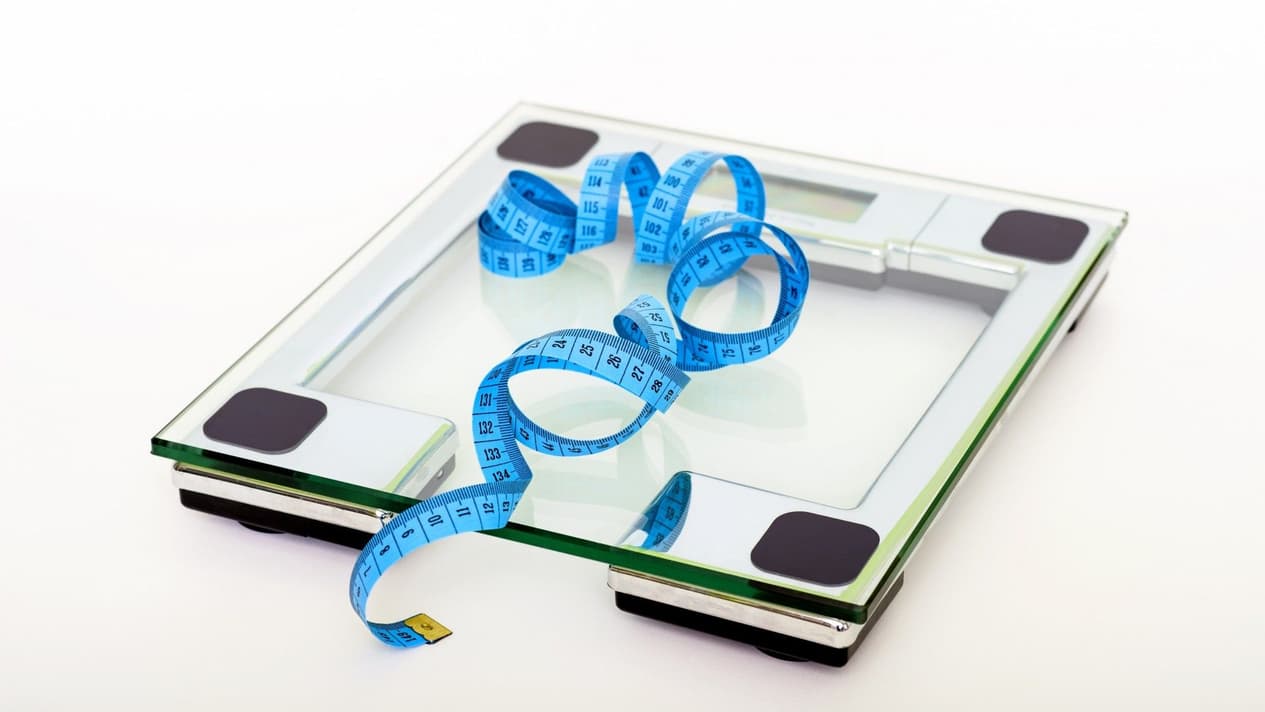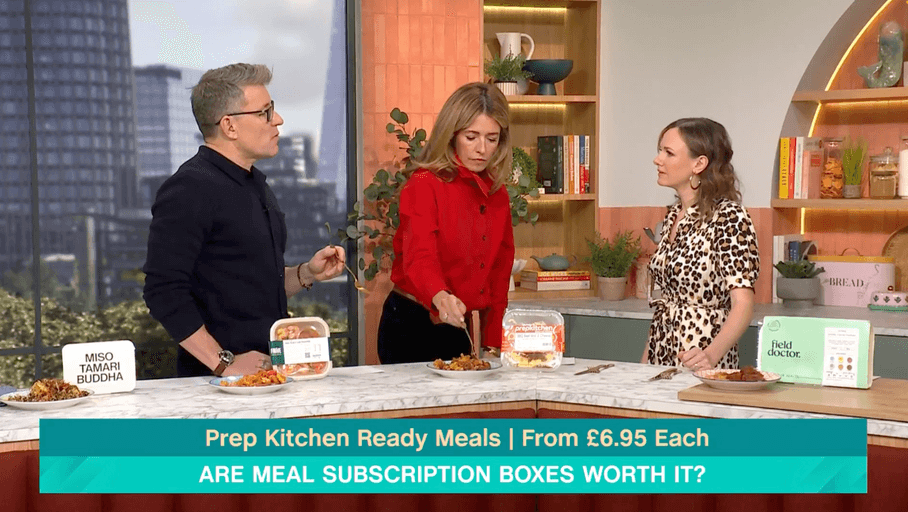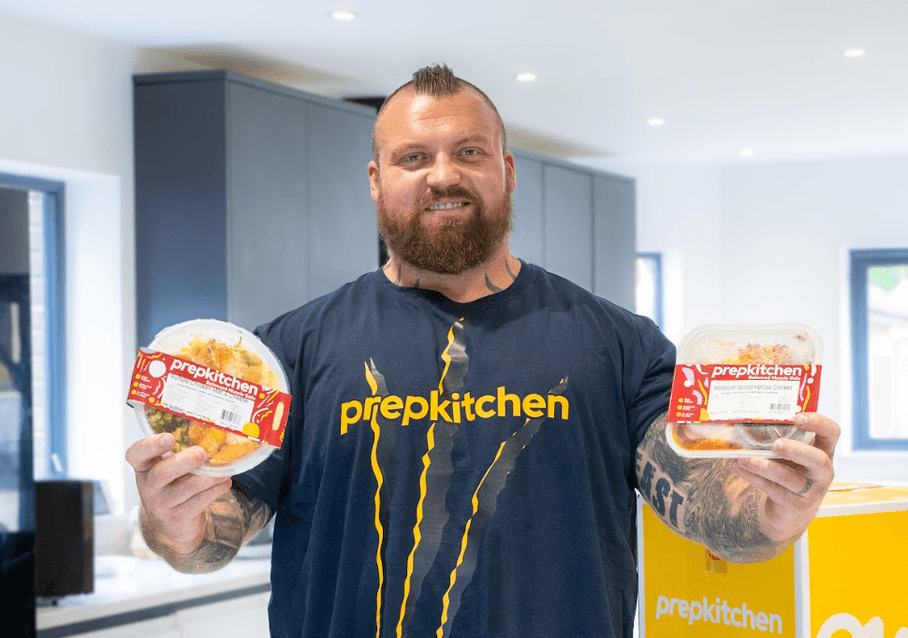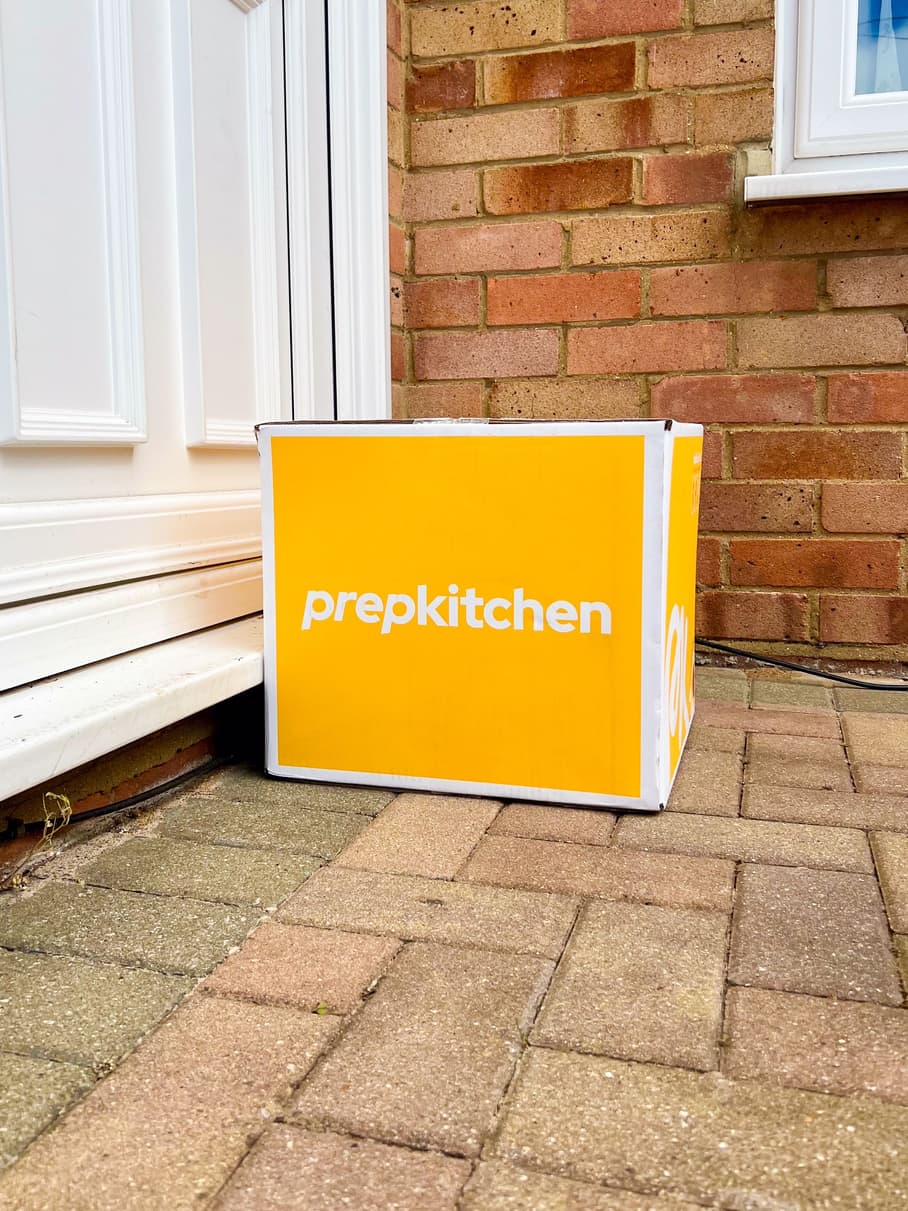Congratulations - you've smashed your health goals! You've hit those targets, you're feeling great, and you're loving your reflection.
Now what?
At times, most of us see weight loss as a beginning and end, as soon as you reach your goal, you feel like you've finished the race. With your confidence and self-esteem at an all-time high, you slowly (and unconsciously) start creeping back into old habits and somehow end up back at the start. Welcome to the YO-YO diet, where more than 50% of those who lose weight end up regaining and dieting again ( 1).
The problem is too often we romanticise the end of the race when it comes to losing weight. Sometimes our efforts are so focused on reaching the end goal that we forget to make a long-term health plan. As we all know, when you fail to plan, you plan to fail and spoiler alert: when you lose weight, it doesn't automatically stay off forever!
Don't worry, we've got you covered! Check out our delicious, high-protein healthy Weight Loss plans.
To help you on your fitness journey, we've also put together some easy tips to help you build on your achievements, and create an easy long-term plan for health:
Top tips for keeping weight off after hitting your goals:
Healthy eating is for life
If you want to maintain your new, healthier weight, you need to accept that you're making long-term diet and lifestyle changes. If you return to your old habits, chances are your weight will creep back up again. It's best to get your head into this way of thinking before you embark on your new health and fitness programme. Don't look at it as a short-term chore, instead view it as a positive turning point that will lead to a new and healthier you! Educate yourself about food, and ensure that you're eating enough protein and fibre which help to regulate your appetite and keep you full.
Keep moving
Regular physical activity is crucial. Find something you enjoy—whether it's walking, dancing, swimming, or weight training—and aim for at least 150 minutes of moderate activity a week.

Practise portion control
Get used to adjusting your portions as it's easy to overdo it even with healthy foods. Listen to your hunger cues, and try to avoid eating out of boredom or habit.
Consider using a meal prep service, as this can help you to either lose, gain, or maintain your weight so can be a key tool for weight management (1).
Meal prep is an important tool for having control of what you are consuming. It takes the guesswork and potentially bad decisions out of food. When you're hungry during the day, you may be tempted to order or eat the first thing that crosses your plate. Having a prepped meal cuts back on food anxiety and insecurity, and ensures proper food decisions.
Meal prep also helps fight the temptation to make poor food choices Your mind doesn't have time to wonder about 'what should I eat?'. It is all prepared for you It is also a great way to combat emotional eating. Meal prep removes the element of impulse purchasing, so when you're having a particularly stressful day at home or work, you won't be tempted to grab a burger with fries if you already have your meal ready to eat. Research supports the concept that people have overall healthier meals when having their meals prepared in advance (2).
Reaching your desired weight is not necessarily the time to celebrate by introducing old bad habits, and eating foods you stopped eating - this is a sure-fire way to creep back into old eating and exercising habits.
Don't reward yourself with food
Rewards matter because it's a way of celebrating your accomplishments, and reminding yourself that you are capable of reaching your goals. These celebrations can help keep you motivated on the days when your new lifestyle plans seem challenging.
It's tempting to celebrate the end of a weight loss journey with a weekend binge of food and alcohol! Unfortunately, this can be a slippery slope and you might find yourself creeping back into old habits that you worked so hard to change and undo all your hard weight loss work. So it's best to choose non-food rewards to keep your progress on track. Choose rewards that celebrate your health and promote your sense of well being, such as a massage, new workout clothes or shoes, a new kitchen appliance, a personal training session, or try a new evening class. Read our article to look at other ways to encourage well being and adopt positive self care strategies.
Watch your weight (but don't obsess!)
Weigh yourself weekly or track how your clothes fit. This helps you catch small changes before they turn into big ones without becoming fixated on the scale. You can't control what you can't measure, so it is important during the maintenance phase to keep track of the new changes and make changes accordingly. If you're still losing weight, perhaps your calorie intake is too low so make changes to your meals.
Keep tracking your food
It can be helpful to document what and how much you eat. The simple act of writing this down, either in a journal or via an app, is a powerful tool that can help keep you in control. Apps like myfitnesspal are helpful to track calories. Doing this can also help to identify if any particular foods cause you to bloat or retain water. If you find your goals change and you need to increase calories or protein to build muscle, check out our healthy Muscle Gain range.

Stay hydrated
Sometimes thirst masquerades as hunger. Drink plenty of water - about 2 litres - sipped throughout the day to keep your body functioning at its best.
Get enough sleep
Sleep affects hormones that regulate hunger and appetite. Aim for 7-9 hours of quality sleep per night to support your efforts. Find out how to optimise your sleep cycle on our blog.
Be consistent, not perfect
Maintenance doesn't just happen- It needs to be planned for with the same intensity as the weight loss programme, and it needs to be adhered to with the same vigour. Anticipate the end of your weight loss programme, and see the maintenance phase as the natural progression into your new, healthier lifestyle.
Understand your triggers and habits
You understand You better than anyone else. Be aware of any mental shifts and behavioural changes that might knock you off course and get some coping strategies in place. The first step have an honest conversation with yourself, acknowledge what is happening, and why it is happening. Then put your crisis strategy into action! This can range from a call to a supportive friend, who understands your journey and can motivate you to stay on track, or a counselling session. Some people find that exercise motivates them and makes them feel more positive, so go to the gym or have a brisk walk. Watch a motivational YouTube video or TikTok, or visit your favourite influencer's Instagram page, but only if they are motivating and make you feel better - don't do anything that makes you feel judged or unhappy with yourself. Keeping a journal can be helpful at times like these - record how you felt, why you felt that way, and what you did to overcome this. You can also record how you felt on really good days, and how sticking to your healthy eating protocol has made you feel better. Focus on how good you feel, and remind yourself why you started. It'll help keep you motivated to stay on track.
Don't let setbacks knock you off course
Finally, we all have ups and downs. Weight naturally fluctuates. If you gain a little, don't panic. Have a quick review of your diet and exercise and make small. achievable adjustments to get back on track. Think of it as a long-term journey, not an "all-or-nothing" game of win or lose. Make your healthy lifestyle as easy as possible with good planning and get lots of support, such as a using balanced meal prep service like Prep Kitchen.
Don't focus on your setbacks, celebrate your successes and remember, you've got this!
If you enjoyed this blog, read these other related blogs on our website:
How to stay fit if you sit 9-5
How to lose, gain, or maintain with Prep Kitchen
References:
1. Ducrot P, Mejean C, Aroumougame V, Ibanez G, Alles B, Kesse-Guyot E, Hercberg S, Peneau S. Meal planning is associated with food variety, diet quality and body weight status in a large sample of French adults. Int J Behav Nutr Phys Act. 2017 Feb 2;14(1):12. doi: 10.1186/s12966-017-0461-7. PMID: 28153017; PMCID: PMC5288891.
2. Monsivais P, Aggarwal A, Drewnowski A. Time spent on home food preparation and indicators of healthy eating. Am J Prev Med. 2014 Dec;47(6):796-802. doi: 10.1016/j.amepre.2014.07.033. Epub 2014 Sep 19. PMID: 25245799; PMCID: PMC4254327.




